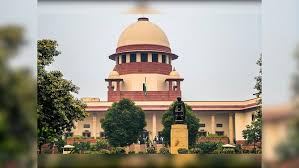Ahmedabad
(Head Office)Address : 506, 3rd EYE THREE (III), Opp. Induben Khakhrawala, Girish Cold Drink Cross Road, CG Road, Navrangpura, Ahmedabad, 380009.
Mobile : 8469231587 / 9586028957
Telephone : 079-40098991
E-mail: dics.upsc@gmail.com

Governor’s withholding Assent to Bills
Context: We will discuss the article specifically in context of Governor’s powers in giving and withholding assent to the Bills.
Background:
• Lately Governors have delayed and sometimes withheld giving assent to Bills passed by State legislatures.
• For example, Kerala had argued that 3 Bills have been pending with the Governor for more than 2 years, and 3 Bills for more than a year. State governments in Telangana, Tamil Nadu, Chattisgarh all have raised similar concerns.
Constitutional Powers of Governor regarding Bills
• Article 163 of the Constitution deals with the general powers of the Governor (including powers to exercise his own discretion in certain cases). Article 200 of Constitution specifically deals with granting assent to the bills.
What options does the Governor have under Article 200 of the Constitution?
• S/He can grant assent to the bill;
• S/He can withhold assent to the bill (Absolute Veto)
• S/He can return the bill for reconsideration, if it is not a Money Bill (Suspensive Veto) If the legislature passes the bill again, with or without amendments, the Governor has to give assent
• S/He can reserve the bill for the consideration of the President
What are the concerns with Governor withholding assent to Bills?
• Undermining Democracy: The Supreme Court has highlighted that the Governor is only the ‘titular head’ and that Bills being kept in limbo could result in the potential breakdown of parliamentary democracy.
• Delay in Legislation: Governors have been accused of delaying the passage of bills, which can slow down the legislative process and hinder the implementation of new policies and reforms.
• Interference with State Autonomy: The delay in assenting to Bills can be seen as an interference with the autonomy of the State governments. This can lead to tensions between the State and Central governments.
• Lack of Accountability: When the Governor withholds assent, he/she does not have to provide any reason for the decision.
• Abuse of power
• Undermine Federalism spirit which is part of the Basic Structure of Constitution.
Various Recommendations:
• Sarkaria Commission – While excluding cases where bills are outright unconstitutional, the Governor must discharge his functions under Article 200 as per the advice of ministers.
• National Commission to Review the Working of the Constitution (NCRWC) – It proposed a 4-month deadline for the Governor to decide on the bill.
• Punchhi Commission - It suggested that the Governor should take a decision with respect to a Bill presented for their assent within a period of 6 months.
Supreme Court observation on the issue:
• In the Shamsher Singh Case the SC held that the expression “in his discretion” is used only in those Articles of the Constitution that confer special responsibilities on the Governor and does not extend to Article 200.
• Nabam Rebia & Bamang Felix Case 2016: The SC clarified that a Governor’s discretion under Article 200 is limited to deciding whether a bill should be reserved for the President’s consideration. The Court emphasized that actions by the Governor regarding bill assent can be subject to judicial review.
Latest SC observation while hearing plea by Punjab government (November 2023)
• It Laid down the law that a Governor, in case he withholds assent, should send back a Bill forwarded to him by a State Legislature “as soon as possible” with a message to reconsider the proposed law. The expression “as soon as possible” conveyed a “constitutional imperative of expedition”.
• In case, the State Assembly reiterates the Bill “with or without amendments”, the Governor has no choice or discretion, and has to give his assent to it.
• Message of the Governor does not bind the legislature is evident from the use of the expression ‘if the Bill is passed again …with or without amendments.
• A Governor who chooses to withhold a Bill without doing anything further would be acting in contravention of the Constitution. Because such a course of action would be contrary to fundamental principles of a constitutional democracy based on a Parliamentary pattern of
• The verdict is also a significant boost to Tamil Nadu’s case. The Tamil Nadu Assembly had returned 10 crucial Bills to Governor R.N. Ravi without any amendments. The Governor had withheld assent to the Bills in the first instance.
Way Forward
• Governor should provide justifiable explanation for refusal.
• Use Pocket veto wisely
• Governor should remain neutral, non-partisan person

Address : 506, 3rd EYE THREE (III), Opp. Induben Khakhrawala, Girish Cold Drink Cross Road, CG Road, Navrangpura, Ahmedabad, 380009.
Mobile : 8469231587 / 9586028957
Telephone : 079-40098991
E-mail: dics.upsc@gmail.com
Address: A-306, The Landmark, Urjanagar-1, Opp. Spicy Street, Kudasan – Por Road, Kudasan, Gandhinagar – 382421
Mobile : 9723832444 / 9723932444
E-mail: dics.gnagar@gmail.com
Address: 2nd Floor, 9 Shivali Society, L&T Circle, opp. Ratri Bazar, Karelibaugh, Vadodara, 390018
Mobile : 9725692037 / 9725692054
E-mail: dics.vadodara@gmail.com
Address: 403, Raj Victoria, Opp. Pal Walkway, Near Galaxy Circle, Pal, Surat-394510
Mobile : 8401031583 / 8401031587
E-mail: dics.surat@gmail.com
Address: 303,305 K 158 Complex Above Magson, Sindhubhavan Road Ahmedabad-380059
Mobile : 9974751177 / 8469231587
E-mail: dicssbr@gmail.com
Address: 57/17, 2nd Floor, Old Rajinder Nagar Market, Bada Bazaar Marg, Delhi-60
Mobile : 9104830862 / 9104830865
E-mail: dics.newdelhi@gmail.com